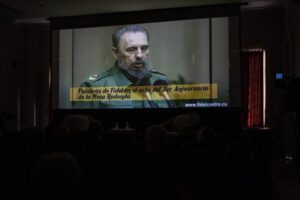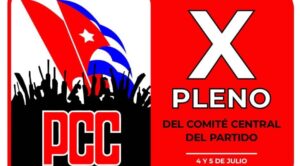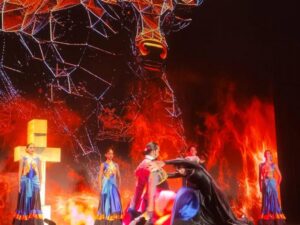To bring together knowledge, to know and understand oneself as part of an innovative science not alien to culture and art…
Why a National Innovation Fair organised by the Ministry of Culture? From today until 7th November, its first edition is being held at the University of the Arts.
Alegna Jacomino Ruiz, director of Science, Innovation and Environment at the aforementioned Ministry, explained to Granma that the first thing is to understand the concept of «innovation in culture»; which implies «the creation of a good or the introduction of a service, a process or a new or significantly improved method, that has impact and relevance for artistic-literary creation and promotion.
«It is about the resolution of specific problems of cultural activity, with support from knowledge, through the introduction of novel practices. These have the possibility of being disseminated and stabilised thanks to the articulation of institutions, enterprises and social organisations related to cultural activity.»
That is why – she opines – it is impossible to separate cultural development from innovative processes in the cultural sector; and the Fair aims, precisely, «not only to make visible how culture can be an effective route for the economic and social development of a country, but the opportune bridge between the spiritual and the tangible from different innovative proposals.»
The event began at the base; as Jacomino Ruiz comments, since last 5th June, 37 municipal innovation fairs have been held, including the Isla de la Juventud; 15 provincial ones, and 15 from institutes, councils, national institutions and enterprises. «There were 242 presentations and 55 innovations were declared. It has been a process rich in knowledge and opportunities. We have verified proposals that have an innovative nuance that astonishes.
«In this way, the role of science, technology and innovation as pillars for sustainable development is validated, articulation between actors is promoted, results are shown and the elaboration of roadmaps that favour solutions to the different demands of the socioeconomic system is encouraged.»
Understanding culture as a route for the innovative development of a country is an opportunity, she reflects; Cuba, despite being a small, blockaded nation facing many difficulties, places itself among those that already reveal how from art one can also innovate.
The Fair’s programme includes spaces for theoretical and practical debate, and a display of the best innovations in four stands dedicated to artistic teaching, the computerisation of heritage, cultural industries, programming and community projects.
Likewise, it offers master lectures, the signing of agreements, and artistic proposals at the close of each day, by the Malpaso contemporary dance company, the Teatro Tuyo group and the Alain Pérez orchestra. The Fair will close with the awarding of the National Prize for Cultural Research, as well as the 2025 Annual Prizes for Cultural Research.
–What expectations do you have for these days of work?
–It will be the ideal moment to identify projections on emerging themes, in which alliances – from the determining contribution of knowledge – will generate new creations to promote quality management, legal and regulatory activity, technology transfer and commercialisation.
«The greatest expectation lies in the confluence of knowledge, in knowing and being aware we are part of an innovative science not alien to culture and art.»
–And after the Fair…?
–We will have to continue promoting projects so that in the future they can be part of our Sectoral Programme, and thus have not only economic backing for their new projections, but so they enter a work cycle or scientific pyramid that can be brought to a happy conclusion, perhaps through a doctoral programme and so, in that way, each proposal becomes scientifically validated.
«The Directorate of Science, Innovation and Environment will have the charge of ensuring that each innovative proposal is carried into deeds.» (Author: Yeilén Delgado Calvo)




